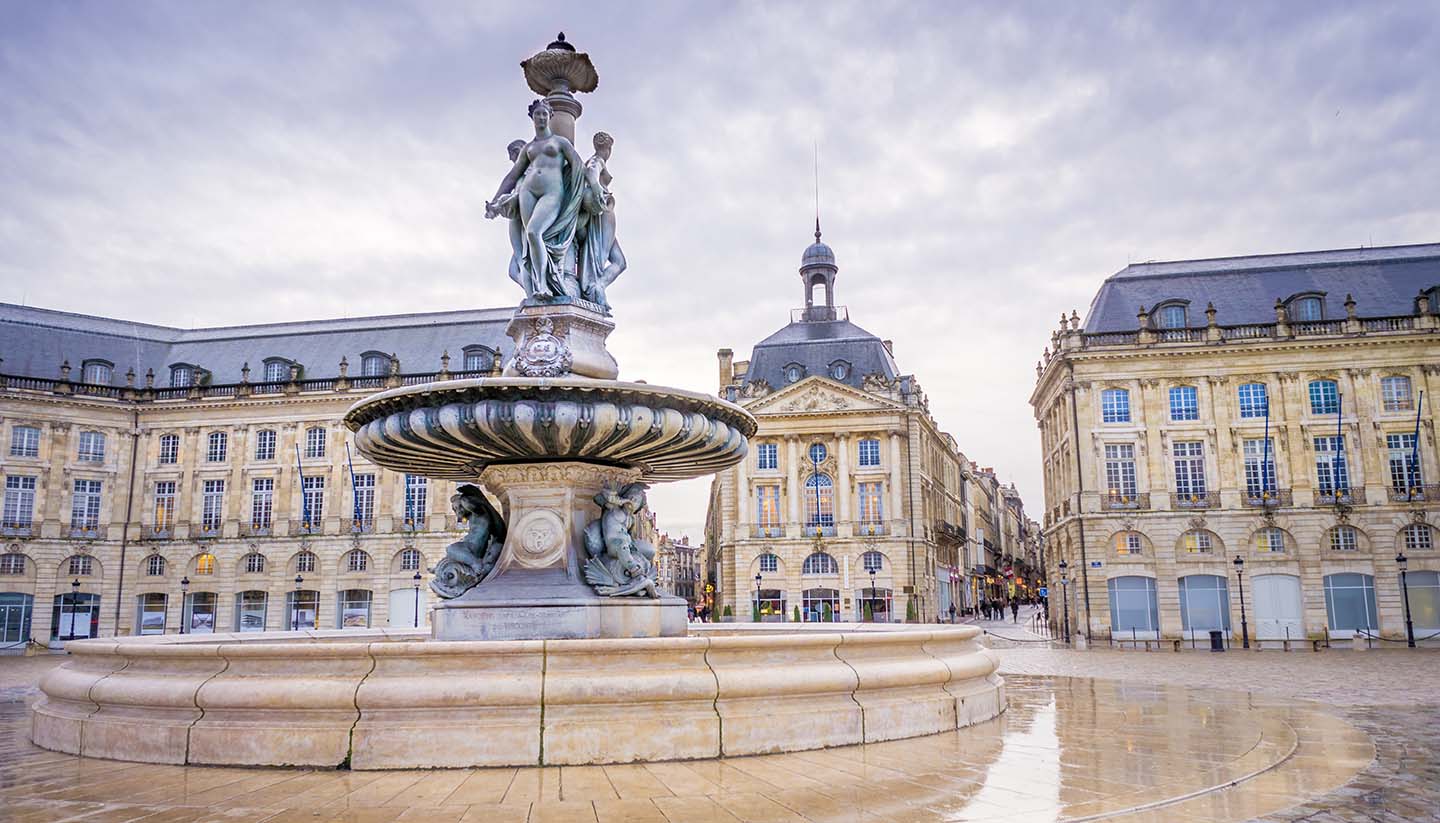Bordeaux History
Known as Burdigala to its original inhabitants, the Celtic Bituriges Vivisci tribe, Bordeaux has a history that is almost as long as it is interesting.
Founded around 300BC on the Rive Gauche (left bank) of the River Garonne, its early years were peaceful until the Romans arrived. Not at all happy about the idea of submission, the Bituriges Vivsci fought back and chalked up a rare victory against the men of Rome at the bloody Battle of Burdigala in 107BC.
By 60BC, however, the Celts had been defeated and Bordeaux became an important Roman centre for lead and tin mining. The city was so significant that it eventually became the capital of Roman Aquitaine, although its success also made it a target. Sacked in 236AD by the Vandals and again in 409, further damage was caused when the Visigoths attacked in 414 and the Franks in 498.
Nevertheless, by the dawn of the 6th century, Bordeaux was rising once again, this time under the auspices of the Merovingians and their successor dynasty, the Carolingians. This growth continued throughout the Middle Ages (the odd sacking notwithstanding), especially after its Duchess Eleanor married Henry II of England.
Further expansion followed in the 16th century when it branched out from wine growing and became the primary point of departure and arrival for slaves. Sugar cane also headed to and from the West Indies from here.
But despite its riches, it wasn’t until the 18th century that Bordeaux’s golden age arrived. Inspired by their increasing wealth, the burghers of the period decided to give their city a facelift. Its winding medieval streets were duly cleared to make way for grand squares and elegant tree-lined avenues, lined with monumental buildings.
Although the World Wars briefly arrested Bordeaux’s development and turned it into a base for the Italian Navy for a while, its real decline set in during the post-war years. However, a recent redevelopment has given the city back its spark and today, Bordeaux is growing once more.
Did you know?
• Bordeaux is home to more than 5,000 buildings, many of which date from the 16th and 18th centuries.
• The Bordeaux Grand Theatre, which still hosts a nightly performance, was inaugurated in 1780.
• Maurius Petipa staged some of his earliest ballets at Bordeaux’s Grand Théâtre.


